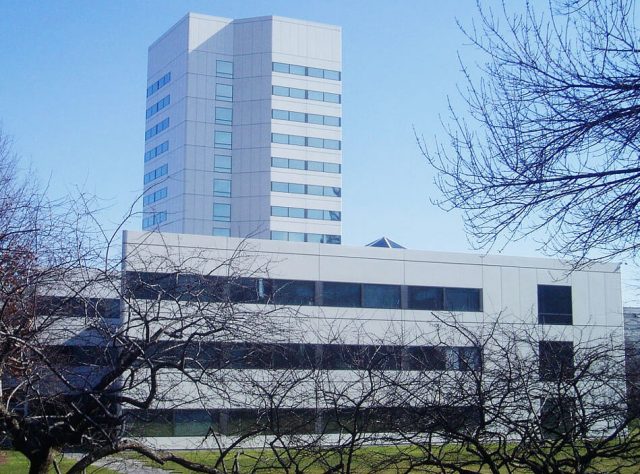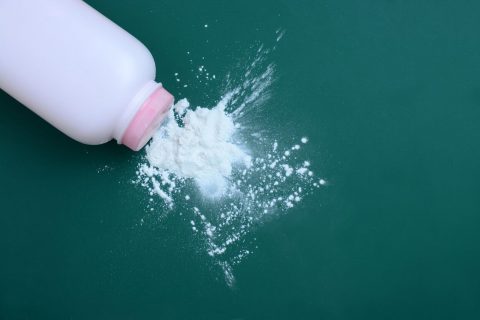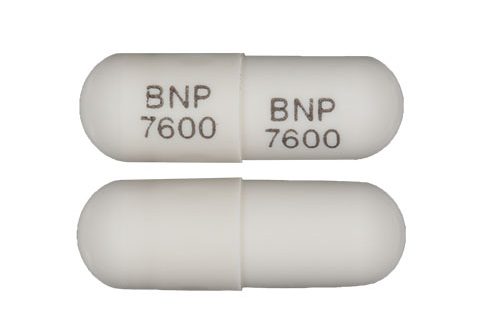Johnson & Johnson
Johnson & Johnson is the world’s largest health care company. It is also the highest paid drug company in the world. J&J remains at the top of the Big Pharma list of powerful corporations with more than $82 billion in annual revenue in 2020. Its top products include Tylenol, Stelara, Invega and various medical devices.
Johnson & Johnson has built a health care empire. It includes prescription and over-the-counter drugs, orthopedic implants, surgical products and household products.
The most popular consumer brands include Band-Aids, Tylenol and Johnson’s Baby Powder. Still, the bulk of J&J’s revenue comes from prescription drugs and medical devices.
However, J&J has been at the center of scandals and government investigations over the years, and the health care giant has faced its share of lawsuits. A Huffington Post investigation called J&J “America’s most admired lawbreaker.” It has issued recalls for some of its drugs and devices, and consumers harmed by J&J products are suing the company.
In 2021, J&J announced that it would be splitting into two publicly traded companies: a consumer products division that sells products such as Band-Aid bandages and its pharmaceutical and medical device division. The company hopes to complete the process by 2023.
COVID-19 Vaccine
On Feb 26, 2021, the U.S. Food and Drug Administration granted an emergency use authorization to J&J’s COVID-19 vaccine. The vaccine, developed by the company’s Janssen Pharmaceuticals unit, is the third to be granted an EU.
“Johnson & Johnson is committed to making its COVID-19 vaccine available on a not-for-profit basis for emergency pandemic use,” the company said in a February 2021 press release.
J&J plans to deliver 20 million doses by the end of March 2021 and 100 million shots to the United States during the first half of 2021.
- Overall, 67 percent effective in preventing moderate to severe/critical COVID-19 occurring at least 14 days after vaccination
- Overall, 66 percent effective in preventing moderate to severe/critical COVID-19 occurring at least 28 days after vaccination.
- 85 percent effective against severe disease alone
Unlike the Pfizer and Moderna vaccines, it can be stored in refrigerator temperatures, only takes one shot to be effective and was tested against new COVID-19 variants prior to receiving its EUA.
The J&J vaccine does not contain a live virus. It uses a modified adenovirus type 26, a virus that causes cold symptoms and pink eye, to help the body make proteins that prepare the body to fight COVID-19.
Common side effects were headache, pain at the injection site, fatigue, muscle aches and nausea. These side effects were mostly mild to moderate and lasted 1-2 days.
About Johnson & Johnson
Johnson & Johnson has over 135,000 employees spread across 60 countries. Its main headquarters are in New Brunswick, New Jersey.
J&J brought in more than $82.6 billion in 2020. It ranked No. 1 in annual revenue among its competitors.
Alex Gorsky is its CEO. He is the seventh CEO to head J&J.

Johnson & Johnson History
Robert, James and Edward Johnson founded Johnson & Johnson in 1886 in New Brunswick, New Jersey. The company focused on bandages, sterile sutures and wound care.
The company also sold women’s health products. These included sanitary protection products. It also sold maternity kits with first-aid products to make childbirth safer.
J&J created the first commercial dressings applied by consumers. We know this product made in 1921 as Band-Aids.
Johnson & Johnson Subsidiaries
Johnson & Johnson is a parent company for over 250 subsidiaries. Together, the companies make up “the Johnson & Johnson family of companies.”
Popular Johnson & Johnson Products
Johnson & Johnson products fall into three categories. These include consumer health care products, medical devices and pharmaceutical drugs.
- Pharmaceutical Sales - $45.6 billion
- Top revenue-producing drugs include: Stelara, Darzalex, Imbruvica, Tremfya, Erleada, Uptravi, Invega, Symtuza, Opsumit
- Medical Device Sales - $23 billion
- Top revenue-producing devices include: Hip implants, knee implants, spine implants, contact lenses and surgery products such as surgical mesh
- Consumer Health Sales - $14.1 billion
- Top revenue-producing products include: Tylenol, Listerine, Band-Aid, Pepcid, Aveeno, Zyrtec
- Elmiron
- only FDA-approved oral drug to treat bladder pain and discomfort of interstitial cystitis
- Proceed Mesh
- Surgical hernia mesh
- Invokana
- sodium-glucose cotransporter 2 (SGLT2) inhibitor to treat Type 2 diabetes
- Tylenol
- pain reliever
- Levaquin
- fluoroquinolone antibiotic
- Risperdal
- antipsychotic drug
- Topamax
- medication used to prevent seizures and migraines
- Xarelto
- blood thinner
- Concerta
- ADHD drug
- Power Morcellators
- device used to remove fibroids
- Transvaginal Mesh
- net-like implant for treating pelvic organ prolapse and stress urinary incontinence
- Hip Replacement
- artificial joint
- Knee Replacement
- artificial implant
- Johnson's Baby Powder
- personal care product made with cornstarch, talc baby powder was discontinued in May 2020
Notable Johnson & Johnson Recalls
Johnson & Johnson recalled some of its most popular products after patients reported injuries. The FDA and other government agencies investigated.
In May 2020, J&J made the decision to stop selling Johnson’s Baby Powder with talc in the United States and Canada.
-
1982 - McNeil
Product Recalled - Tylenol (acetaminophen) capsules
Reason for Recall - Medicine laced with potassium cyanide (poison) resulting in several patient deaths
-
2009 to 2011 - McNeil
Product Recalled - Several OTC medicines including Tylenol, Motrin, Benadryl, St. Joseph aspirin, Sudafed, Pepcid, Mylanta, Rolaids, Zyrtec, Zyrtec Eye Drops (tens of millions of bottles)
Reason for Recall - Unpleasant smells causing nausea; tiny metal shards in liquid medicines; wrong ingredient levels
-
2010 - DePuy [Pinnacle Systems]
Product Recalled - ASR Hip Resurfacing System and ASR XL Acetabular System (metal-on-metal hip implants)
Reason for Recall - Metal poisoning (metallosis); loosening of the implant or joint dislocation; additional surgeries
-
2012 - Ethicon
Product Recalled - Gynecare Prolift Kit, Gynecare Prolift+M Kit, Gynecare TVT Secure and Gynecare Prosima Pelvic Floor Repair System Kit (transvaginal mesh implants)
Reason for Recall - Perforation of organs; vaginal bleeding and scarring; mesh erosion; severe pain
-
2013 - McNeil
Product Recalled - Motrin (ibuprofen) for infants (200,000 liquid bottles)
Reason for Recall - May contain tiny particles of plastic
-
2013 - Janssen
Product Recalled - Risperdal Consta (injectable antipsychotic drug) (one lot)
Reason for Recall - Routine testing showed evidence of mold
-
2014 - Ethicon
Product Recalled - Power Morcellators
Reason for Recall - Spread of uterine cancer; rapid progression of the disease; death
-
2016 - Ethicon
Product Recalled - Physiomesh flexible composite hernia mesh
Reason for Recall - Studies showed higher revision rates after implant
-
2017 - SterilMed
Product Recalled - Agilis Steerable Introducer Sheath (hemostatic heart valve)
Reason for Recall - Device failure due to an improper seal of the sheath hub, which can allow blood leakage, device detachment during the procedure or development of an air embolism
-
2019 – Johnson & Johnson
Product Recalled – 33,000 bottles of Johnson’s Baby Powder
Reason for Recall – The FDA found a small amount of asbestos — a known carcinogen — in a sample
Johnson & Johnson Lawsuits
J&J has faced hundreds of thousands of lawsuits over claims its products are defective.
Lawsuits point to internal documents showing J&J and its subsidiaries knew about problems with their products but sold them anyway.
In addition to individual product liability lawsuits, individual states who say Johnson & Johnson helped fuel the opioid crisis are suing the company for millions of dollars.
- DePuy ASR XL Acetabular System and DePuy ASR Hip Resurfacing System
Number of Lawsuits - 550
Injuries - dislocation, loosening, metallosis (metal poisoning), revision surgeries
- Pinnacle Acetabular Cup
Number of Lawsuits - 7,056
Injuries - dislocation, loosening, metallosis (metal poisoning), revision surgeries
- Xarelto
Number of Lawsuits - 13,511
Injuries - severe, sometimes deadly bleeding events, blood clots, wound leaks, infection
- Johnson’s Talcum Powder
Number of Lawsuits - 27,168
Injuries - ovarian cancer, mesothelioma cancer
The company is facing smaller, emerging litigations for the interstitial cystitis (IC) drug Elmiron and DePuy’s Attune knee implants.
Elmiron litigation is in the beginning stages with a handful of cases filed in state courts, but lawyers expect hundreds more. People who filed lawsuits say Johnson & Johnson’s Janssen Pharmaceuticals unit failed to warn them that the drug could cause vision problems, particularly a condition called pigmentary maculopathy.
DePuy’s Attune knee implant litigation is ongoing, and people who filed lawsuits say the implant loosened and failed leading to pain and revision surgery.
DePuy hip litigation is ongoing, and juries have awarded more than a billion dollars to plaintiffs who say they were injured by faulty Pinnacle hip implants. In February 2019, Bloomberg reported the company may be willing to pay $400 million to settle 3,300 of the claims but was not offering a global settlement.
Talcum Powder Litigation
In 2019, J&J recalled tens of thousands of bottles of its iconic Johnson’s Baby Powder after the FDA found small amounts of asbestos in a sample.
Then in May 2020, the company said it would stop selling talcum-based baby powder in Canada and the United States. The company said it stopped selling the product because of low sales.
But state juries have ordered the company to pay billions of dollars to people who claimed the product gave them cancer. In October 2020, Johnson & Johnson agreed to settle more than 1,000 talcum powder lawsuits for $100 million.
Lawyers in the federal lawsuits expect to prepare for bellwether trials soon but none have been scheduled as of February 2021.
J&J still faces more than 27,100 federal talcum powder lawsuits in multidistrict litigation and many more in state courts as of February 2021.
Major Johnson & Johnson Verdicts and Settlements
J&J was involved in seven of 2017’s top ten health-care-related verdicts.
The company was also involved in the third-largest pharmaceutical settlement with the U.S. Department of Justice. In 2013, J&J paid the Justice Department more than $2.2 billion. The settlement resolved civil and criminal allegations involving Risperdal, Invega and Natrecor.
J&J has successfully defended many of its product liability cases, but it has still faced billions in jury verdicts and settlements.
One of the largest verdicts was an $8 billion award to a single Risperdal plaintiff in October 2019. The trial judge later reduced the verdict to $6.8 million.
Talcum powder lawsuits continue to pile on for J&J. In 2021, Reuters reported the company set aside about $4 billion in 2020 for litigation expenses related to talc.
-
February 2016
A jury in Missouri ordered J&J to pay $72 million in a Johnson’s Baby Powder case. An appeals court tossed the verdict in 2017.
-
March 2016
A jury in Texas awarded five patients $500 million in a Pinnacle hip implant case. State law required the award be cut to $150 million.
-
December 2016
A jury awarded $1 billion to six patients in a Pinnacle hip implant case. A judge slashed the award to $543 million.
-
April 2017
A jury in Philadelphia ordered J&J to pay $20 million in a transvaginal mesh lawsuit.
-
May 2017
A jury in Missouri awarded $110.5 million to a woman who developed ovarian cancer after using Johnson’s Baby Powder and Shower to Shower talcum powder. J&J planned to appeal the verdict.
-
May 2017
J&J paid $33 million to most U.S. states and the District of Columbia. The states charged J&J with misrepresenting the manufacturing practices behind certain drugs. This included its Motrin products. These products were later recalled.
-
August 2017
A California jury ordered J&J to pay $417 million in a Johnson’s Baby Powder and talcum powder case. A trial judge overturned the verdict in October 2017 and ordered a new trial.
-
November 2017
A federal jury in Dallas ordered J&J to pay six patients $247 million in a Pinnacle hip implant case. J&J said it planned to appeal the verdict.
-
December 2017
A federal jury in Philadelphia ordered J&J to pay $27.8 million in a Xarelto bleeding lawsuit. A judge overturned the verdict in 2018.
-
December 2017
A New Jersey federal jury issued a verdict of $15 million against J&J in a Prolift pelvic mesh case.
-
March 2018
An Indiana jury awarded a woman $35 million in a Prolift pelvic mesh case. J&J planned to appeal the verdict.
-
July 2018
A St. Louis jury awarded $4.69 billion to 22 plaintiffs who said J&J’s talcum powder products caused their ovarian cancer. It was later reduced.
-
March 2019
A California jury awarded $29.4 million to a woman who said she developed mesothelioma after using J&J’s talcum powder products.
-
October 2019
A Pennsylvania jury awarded $8 billion to a plaintiff in a Risperdal case. It was later reduced to $6.8 million.
-
June 2020
A New Jersey jury awarded $750 million in punitive damages to four people who said J&J’s talcum powder products caused them to develop mesothelioma. The award was later reduced.
Calling this number connects you with a Drugwatch representative. We will direct you to one of our trusted legal partners for a free case review.
Drugwatch's trusted legal partners support the organization's mission to keep people safe from dangerous drugs and medical devices. For more information, visit our partners page.





